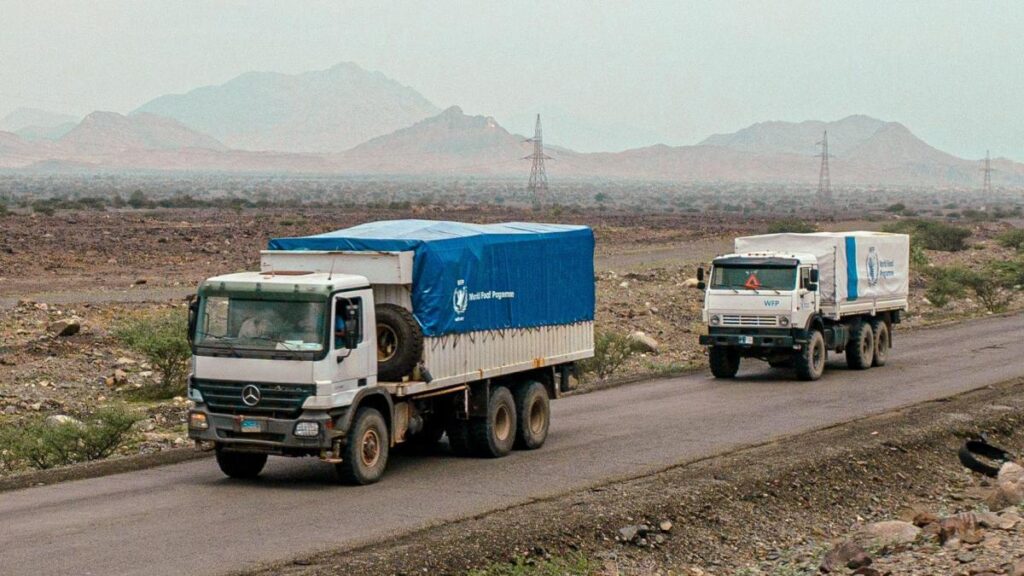In a significant development amidst the ongoing humanitarian crisis in Sudan, a famine-stricken camp sheltering approximately 500,000 displaced individuals in Zamzam has received its first convoy of aid in several months. The Situation in Zamzam has deteriorated dramatically due to the protracted civil conflict that has plagued Sudan for the past 18 months, which has been marked by intense confrontations between the Sudanese army and the paramilitary group, Rapid Support Forces (RSF). The United Nations World Food Programme (WFP) reported that aid deliveries had been interrupted for months due to heavy fighting in el-Fasher, coupled with the challenging conditions on the ground caused by the rainy season rendering roads impassable. The civil war has culminated in what is now recognized as the largest humanitarian crisis globally, resulting in the displacement of 10 million people and significant food insecurity.
The population in Zamzam has surged since April when the RSF intensified its offensive to seize control of el-Fasher, which remains the sole city in Darfur under military oversight. Independent food security specialists have raised alarms, declaring that Zamzam has descended into famine conditions. The criteria for famine classification include an extreme food shortage affecting at least 20% of households, with 30% of children experiencing acute malnutrition, alongside a daily mortality rate linked to starvation or related ailments affecting two individuals per 10,000. This compounded crisis continues to jeopardize the lives of many individuals, particularly the vulnerable population of children struggling against acute malnutrition.
The recent food convoy represents only the beginning of a comprehensive surge in the WFP’s operations to alleviate the mounting distress facing communities in Sudan’s most isolated and conflict-affected areas. It is part of a broader initiative involving three separate convoys totaling over 700 trucks, equipped to provide sustenance for approximately 1.5 million individuals for over a month. Additionally, aid is being dispatched to the South Kordofan state, highlighting the widespread need for humanitarian assistance amid the ongoing violence and instability affecting numerous regions across the country.
The United Nations has emphasized the importance of securing safe passage for these convoys to ensure access to those in dire need. Laurent Bukera, the WFP regional director for Eastern Africa, underscored the gravity of the situation, stating that the trucks convey more than mere food; they represent a vital lifeline for individuals caught in the midst of conflict and hunger. Moreover, he called for sustained international support to facilitate access to all families at risk, advocating for consistent cooperation and assurance that humanitarian efforts are not disrupted by ongoing hostilities.
The environment for delivering aid has been fraught with challenges, as both factions involved in the conflict have faced accusations of obstructing and looting aid shipments while denying responsibility for such actions. The convoy that recently reached Zamzam originated from Adré on the border with Chad, marking a key logistical route for transporting aid into Darfur. After being closed due to government orders in February, this critical corridor was re-established for three months in August, allowing aid to flow into beleaguered regions. Despite governmental protests against the reopening—asserting that it could enable arms deliveries to the RSF—the authorities agreed to an extension, permitting aid access for an additional three months.
A further convoy of WFP assistance also departed from the army-controlled Port Sudan, Sudan’s lone port, heading towards Zamzam camp. These developments underscore the ongoing struggle to deliver humanitarian aid amidst complex power dynamics and security concerns. The situation for millions of displaced and food-insecure individuals in Sudan continues to be perilous, as the warring factions grapple for control while the humanitarian needs grow exponentially. Addressing these challenges and ensuring sustained access to essential aid remain crucial as the crisis unfolds in the region.

